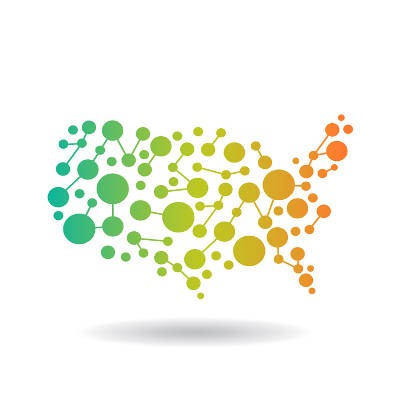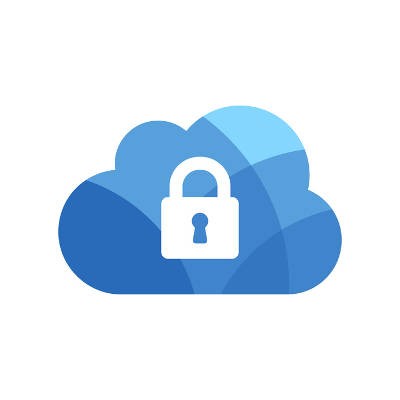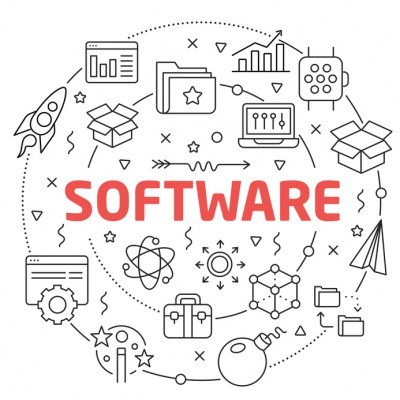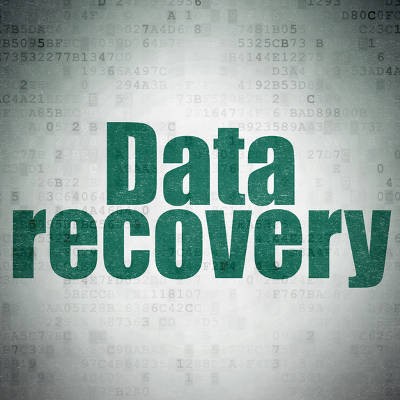As incredible a tool as the Internet truly is, for every website that is beneficial to the workplace, there is another that is certainly the opposite. Naturally, it is these sites that your employees would most likely want to visit if left to their own devices. Sometimes, the best course of action is to remove the temptation and block these websites. For this week’s tip, we’ll talk about a few ways to do so.
Telesys Voice and Data Blog
With so many new technologies being introduced and innovation at the highest levels in human history, you’d think that ubiquitous access to bandwidth Internet would be high on the list of the priorities of ISPs and for residents of every jurisdiction. This doesn’t seem to be the case. With the disparity between urban and rural bandwidth Internet offerings growing by the day, we look at the causes of the gap and how companies plan on getting Internet access to people in areas where the population may be low.
A little background would tell you just how much some places are behind others. To start, 15 million Americans don’t have access to broadband Internet. Beyond that, they pay more for it than almost any people in a first-world nation; and, if that wasn’t enough, the average speed available is slower and less reliable. Furthermore, it seems as if the Federal Communications Commission, the federal regulator of such things, finds no problem with this--and if there was a cherry on top, they seem to be foregoing assessment and analysis of the problem for more nationalistic rhetoric stating that new strategies that have been implemented after the fall of net neutrality laws are “removing barriers to infrastructure investment, promoting competition, and restoring the longstanding bipartisan light-touch regulatory framework.”
This despite two FCC commissioners saying things like the FCC’s statement is “ridiculous and irresponsible,” and “biased, flawed, and woefully incomplete.” The politicization of what traditionally is an objective report, is one of the many problems that the people of the United States are facing in regard to Internet availability. Unfortunately, this has been an ongoing problem for the better part of two decades. Let’s move away from politics to look at some of the ways that the country is making out with Internet access.
Internet Service Providers
An Internet Service Provider (ISP) is a company that, well...provides Internet service and support to customers. ISPs don’t have to be huge media conglomerates, but many of them are, and while they mostly provide in-home service, and “business-class” service, they do a lot more than that: they provide an essential service to everyone that needs it. It doesn’t seem like there is any difference in the two, of course, but there is. It is this qualification that allowed FCC chairman Ajit Pai to effectively take down the net neutrality laws in 2017. It was all in the name to allow ISPs to be looked on as less of a utility (which they most certainly are) and more as a service; thus, paving the way for infrastructure investment.
So, in layman’s terms, the ISPs needed incentive to build access to Internet where it wasn’t, and have been given the run of the Internet to make this happen. That would be great if ISPs, especially the major ones, had a strategy in place to make these infrastructure investments, but it seems, at least on the surface, that the only thing they did have a strategy for is to reap the benefits of the dissolution of the net neutrality laws.
No matter how you slice it, the ISPs that distribute broadband access in the U.S. (and in the U.K. for that matter) aren’t doing a great job at serving their customers. As of May 2018, the United States ranks 47th in the world in average bandwidth speed, while the U.K. ranks 51st. At the same time, only four nations’ businesses pay more for high-speed Internet than businesses do in the United States (at $60.14 per month). At least in the U.K. the average price for high-speed Internet is under $37 per month ($36.83).
If those figures weren’t bad enough, before the newest era of deregulations, ISPs have been accused of pocketing hundreds of millions of dollars for fiber optic infrastructure that never materialized. Skeptics say that most of that was tax subsidy and it was utilized in creating many of the wireless networks that we all utilized today. So, whether or not the ISPs did, in fact, invest that money back into infrastructure or not, many people would argue that it was not what that money was appropriated for and that it should be a giant scandal. Since it wasn’t, it’s fair to assume that the truth is somewhere in the middle as many of these investments were made before the great recession at the end of the last decade. Besides a lot of that capital would have been going to state utility telecommunications contractors and not the ISPs themselves. If ISPs need public assistance to lay this infrastructure it stands to reason that the public should get some of the benefits. Of course, this isn’t the case and it just makes the ISPs positioning in this case seem awful questionable.
Affordable, High-Speed Network
For those who don’t put the onus on the ISPs for a lack of infrastructure investment, there is always the same argument, it’s not the companies, it’s not the Feds, it is the local municipalities that are not working with the powers that be to get people Internet. This is where the situation gets really strange. Over the past 15 years or so municipalities have begun providing Internet access to themselves and their citizens. This is normally because they were tired of paying the ludicrous rates ISPs had demanded; or, more likely, where ISPs have failed to build high-speed infrastructure. Cities like Philadelphia, Pennsylvania and Santa Monica, California have laid infrastructure for government and business use.
This seems like a decent enough investment for public money as it has enough recurring income generated to pay for the system and the maintenance for it. As more cities began to jump on board, there suddenly was dissent from legislative bodies. As the dissent grew louder, laws started to pop up all around the U.S. limiting, or in some cases prohibiting municipalities from building broadband networks. As of the beginning of this calendar year 18 states have outlawed municipalities from investing in broadband infrastructure, effectively limiting their ability to provide high-speed Internet to their constituencies.
If you are thinking, “why would they do that?” You don’t have to look much further than the enormous contributions by the telecom lobby, led by telecom heavyweights Verizon, Spectrum, and Comcast. Effectively, the ISPs, whose purpose is to provide broadband services to customers, are paying legislators to eliminate their competition. Some of the states in the study have a lot of areas where there are two (or less) options for broadband Internet service, while two of the states have millions of people who don’t have access to ANY broadband Internet, which up until the net neutrality law kicked in on June 11, 2018 was regulated as a Title II utility. Imagine living in a place where you had no access to electricity or running water?
According to the Federal Communications Commission, 39% of rural Americans don’t have access to the Internet, and the ones that do, pay more for worse services. So, while almost a quarter of urban residents simply can’t afford broadband Internet service, at least they have the option to get it if they did. Now there are some remote places in the country to be sure, and some people that live in those places don’t necessarily care if they have access to high-speed Internet anyway.
Solutions
The basic problem is that broadband access hasn’t reached big stretches of rural America, so the major solution would be to lay the infrastructure necessary to get them the high-speed Internet they need. That takes capital, and the current FCC hierarchy has promised that with the repeal of the net neutrality laws there will be a boom in network infrastructure investment. With market forces working to dictate investment strategies, rather than heavy-handed and expensive regulatory ones, time will only tell if this will become a reality.
Another solution to the problem could be the proliferation of wireless Internet services that meet FCC standards for “high-speed”. The truth is that depending on huge publicly-traded telecoms to invest in places where it may be decades before they can see any type of return on investment lacks incentive, so only time will tell if the people who need access to high-speed Internet will get it.
If your business could use faster and more reliable Internet service, the IT professionals at Telesys Voice and Data may be able to help. Contact us today at (800) 588-4430 for more information.
On the surface, you might think that customer relationship management (CRM) and enterprise resource planning (ERP) are the same exact thing. However, they both have very specific niches for a business--particularly when it comes to managing organizational assets and interactions with consumers. Here are some of the specific situations in which you’ll find these solutions helpful.
Customer Relationship Management (CRM)
A CRM solution is specifically designed to provide a service-oriented organization with a way to communicate with clients--both current and prospective. A CRM solution can be used to automate certain functions, which makes for a much easier sales funnel in several ways. The ways a CRM can improve a business:
- Better customer communications
- Organization for your sales teams
- Revenue creation
- Ability to target potential customers
- Customer loyalty and satisfaction
All in all, a dedicated CRM can help keep your customers devoted to your brand or product, securing your business' future through repeat sales and building leads that work to build revenue. In short, it’s the ideal way to manage operations, onboard new clients, and guide them through your sales process.
Enterprise Resource Planning (ERP)
Rather than work on the consumer end of the business model, the enterprise resource planning solution is designed to help a manufacturer manage internal operations, as well as many other functions that contribute to optimizing efficiency. You can think of the Enterprise Resource Planning solution as the central hub for your business’s assets. Some of the ways that a business benefits from an ERP are:
- Procurement and distribution of assets
- Seamless data sharing between departments
- Streamlining communication between departments
In short, an ERP is meant to keep your business’s internal operations as streamlined as possible through constant connectivity to important assets and resources. It allows for seamless data sharing throughout your organization to ensure efficiency between the separate departments at work within every manufacturer. This effectively makes your business' internal processes much more streamlined.
It’s easy to see why the two could be confused, but a ERP and CRM are two fundamentally different solutions as they are for two totally separate types of businesses. The ERP hopes to increase profits by streamlining the way that you approach your internal operations, while a CRM improves profitability by optimizing the revenue creation strategies your business uses.
How would your business benefit from these software solutions? To find out how, reach out to us at (800) 588-4430.
How much money does your business waste on managing its technology solutions? You might be surprised by the answer to this question. Depending on the way that your organization takes advantage of technology, you’ll have different needs than other businesses, but no matter what kind of organization you manage, it’s critical that you try to get the best return on investment for your solutions.
Let’s start by talking about the way that the average business might leverage technology maintenance solutions. Depending on your business’ staffing capabilities, you might have an in-house IT department that is responsible for general upkeep and maintenance. If you don’t, then chances are that you are either having your employees manage the maintenance of their own technology, or your devices simply aren’t being maintained as well as they need to be. Either scenario isn’t ideal, especially since you can’t take any risks nowadays when it comes to your technology maintenance.
For example, let’s say that a mission-critical patch has been issued for an important piece of software that your organization relies on. Without it, you would be at risk of infection from all manners of threats, including some of the nastiest ransomware on the Internet. Devices need to be periodically updated with the latest threat definitions to ensure that they don’t go unprotected. But the issue here lies in the fact that it’s time-consuming and troublesome to update several devices at once with the latest patches and updates.
Let’s take this a step further and think about a hypothetical worst-case scenario. What would you do if your organization were to suffer from a crippling data loss incident? In the event that our organization falls victim to a flood or fire, your data infrastructure could be destroyed… unless it’s backed up and maintained off-site.
Another service that presents substantial value for any business is one that supplies some form of proactive maintenance and management. This can be an effective way to keep your network free from threats, while keeping all your infrastructure monitored and in working order. Since an outsourced provider can accomplish this maintenance remotely, you can see much less downtime and higher degrees of productivity.
This type of maintenance can be difficult to come by for small businesses if they choose to do it themselves, but a managed service provider can keep your organization from having to stomach some of the largest expenses a thoroughly monitored, maintained, and supported IT infrastructure can incur. Not only do you save money by not adding salaries to your budget, but you also save time and resources by outsourcing the majority of the time-intensive work elsewhere.
To learn more about Telesys Voice and Data’s professional managed services, call our consultants today at (800) 588-4430.
One of the inevitabilities of working with the cloud is that you have to face a tough question; what kind of compliance requirements are there for cloud-based data? If you’re storing data for your business in a cloud-based environment, it becomes your responsibility to know where and how this data is stored--particularly if you’re not the one doing the actual cloud hosting. How do you maintain compliance when you seemingly have so little control over how your computing platform is managed and maintained?
It all starts by asking your cloud provider specific questions about how compliance is handled, as well as what terms are written into the agreement that you have with them. We’ll go over some of the details that you’ll need to address.
The Cloud Can Be Tampered With
Naturally, one of the major concerns that businesses might have about cloud compliance is the idea of how this data is being managed, maintained, stored, and transferred. This also means that it can be changed or intercepted while it is in transit. Therefore, the key concern is that data could be changed without the user’s knowledge. Those who are concerned about the legal ramifications of this should focus on learning who is hosting the data, how it is being maintained, how it is being transported from the hosting site to your infrastructure, and who can see this data. This line is further blurred by the differences between the public and private cloud. In other words, is your data being stored alongside someone else’s data? Are there partitions put into place that limit access based on role and organization? The question of security is of the utmost importance and will be a major point that you’ll need to hit for compliance’s sake.
What Can You Do?
Using the above statements as a springboard, you’ll need to think about how your business plans on securing cloud-based data and ensuring its compliance with any regulations your organization is beholden to. You start by first assessing just how deep into cloud computing your organization actually is. Depending on the importance of certain data, you may decide that a combination of private and public cloud platforms present the ideal solution. For sensitive information, an internal network or private cloud is ideal, while less sensitive or important data is stored elsewhere.
Next, you’ll need to consider who is managing this data, and what kind of agreements you will have to make to guarantee its safety. Is it being managed by an in-house department or a third party? If it’s a third party, for example, you’ll need to determine responsibilities and consequences of failing to adhere to compliance guidelines. It’s also important that you know what types of security and backup solutions are being used to protect your assets.
Since your organizational reputation and integrity is on the line, your best bet is to find a way to design, deploy, and support a private cloud solution onsite for any data that could possibly be subject to regulatory compliance. Otherwise, you may find that any cloud-hosting company or colocation service won’t have your immediate needs top of mind.
Telesys Voice and Data can help your business ensure security of your cloud solutions. To learn more, reach out to us at (800) 588-4430.
Mobile technology is allowing businesses to make great strides in the way that they conduct their operations, but one of the key reasons why it has been so helpful is that it decreases their costs considerably. Thanks to developments in the way that mobile technology works, it can be fit into pretty much any business model, all the while improving your return on investment for your expensive technology solutions.
In terms of cost reduction, the most notable one comes from always being connected to the office. Without the need to be on-site, mobile computing give a business’ employees all of the tools needed to perform their daily duties from wherever they happen to be--whether it’s at the coffee shop down the road or a hotel while away on a business conference. Mobile devices break down barriers in the quest for profitability, making them great investments. One great example is a Chromebook. While it isn’t as powerful out of the box as a full-fledged workstation, it has the potential to be just as great of a solution with the proper support as long as you stick to certain software titles.
Mobile devices also present a challenge when it comes to security, though. When more devices have access to data of a sensitive nature, it’s placed at more risk of being exposed to potentially dangerous entities. Therefore, you need to take measures to ensure that it’s secure; otherwise, you could be placing the future of your entire business at risk. Preventative solutions are of the utmost importance and can be the end-all-be-all for keeping hackers and user errors from sabotaging your chances of success.
For example, mobile device management can be a critical way to shore up weaknesses in your mobile device strategy. Mobile device management contains several solutions that allow your organization to take action against common scenarios involving the management of mobile devices. If you lose a device, you should be able to easily (and remotely) wipe any data that’s found on it so that it can’t be accessed by those who find it. This means that your organization doesn’t have to worry as much if a device is ever lost or stolen.
Another aspect of a mobile device management solution is whitelisting and blacklisting applications, which keeps your employees accountable and responsible with which mobile applications are downloaded to their devices. You can keep employees from downloading time-wasting or malicious apps so that you don’t have to worry about them throwing away their workday on Facebook and Twitter. Furthermore, the devices will remain as secure as can be, relieving some of the stress that can come from whether or not your employees are downloading unnecessary or dangerous apps on devices intended for business.
User control is a great way to control risk associated with mobile devices. Simply put, if your employees don’t need access to a certain kind of data, then they shouldn’t be able to access it, period. For example, your average employee doesn’t need access to payroll information or other sensitive data. Giving their accounts access puts it at risk if they ever lose their device or install some kind of malware that gives access to this data to unsavory characters.
Another great solution for keeping data safe is to deploy a Virtual Private Network (VPN). The VPN sets up a virtual encrypted tunnel between your network and your staff’s devices, inherently creating a much more secure data transfer situation than would be typical over normal networking means.
By taking better care of your devices from a security standpoint, you eliminate the costs associated with potential data leaks and other issues. Furthermore, you allow for increased productivity for all employees involved, giving them the option to work more hours remotely or off-site. It’s the ideal way to connect all of your business’s employees without putting your organization at risk.
Does your organization need a mobile device management solution, or are you having trouble integrating mobile devices into your everyday workflow? Telesys Voice and Data has an answer for that. To learn more, reach out to us at (800) 588-4430.
It’s imperative that your organization’s software is managed properly. If you can’t do this, then your operations can suffer in the long run. While this might sound like a lot of work, software management isn’t as difficult as it sounds if you break it down into compartmentalized tasks. Ultimately, you can group it into three major steps: leveraging available assets, testing strategies, and understanding the software.
The file cabinet. It may be a staple of the office, but boy can they be a pain in the neck. Every file needs to be printed and collated only to be filed in a dingy file cabinet with the off chance that it will ever be needed again. For businesses that have a lot of paper filed away, a document management system can go a long way toward modernizing your organization, and providing a access-controlled database where you can find any file in seconds.
Compliance laws regarding the storage and dispersion of healthcare records were implemented with the intended purpose of urging healthcare providers to better take care of their patients’ personal information, but how effective are they? Unfortunately, there are many providers that have failed to meet the standards for the HIPAA and HITECH compliance laws, and it has brought a hefty price tag along with it.
In 2016, the Office for Civil Rights (OCR) and the Department of Health investigated several data breaches that led to a considerable sum being claimed in response to violations of these compliance laws. In what totaled to 12 settlements following the investigations of data breaches caused by failure to comply with these laws, as well as one monetary civil penalty, these claims amounted to approximately $25,505,300 in fines.
Compare this to the more recent data. In 2017, there were only nine HIPAA settlements that produced a total of $19,393,000, as well as a single monetary civil penalty paid, a considerably smaller sum than the previous year. Clearly something is working here, but what is it? Perhaps it’s the fear that being negligent with important data could mean a large sum raining down on the heads of those who fail to adhere to these laws.
What’s even more interesting are the types of violations that led to these penalties. While the majority of these involve a failure to protect protected health information, or PHI, and its digital counterpart electronic protected health information (ePHI), there are a couple of outliers that are interesting to look at. Here are some of them:
- Insufficient ePHI access control
- Impermissible disclosure of ePHI
- Careless handling of PHI
- Multiple HIPAA violations
- Delayed breach notifications
- Lack of security management process
- Lack of a business associate agreement
The majority of the issues revolving around HIPAA and HITECH compliance come from an inability to secure mobile devices, failure to implement proper security processes, and delaying breach notifications for far too long.
As for HITECH specifically, a recent lawsuit was filed in federal court against 60 hospitals over alleged failure to adhere to the HITECH Act. Specifically, these hospitals failed to adequately provide records and documentation for 50% of their patients within three business days of the request. This is one of the specific requirements for securing funding through the HITECH Act, so you can understand that this was quite a big red flag for government.
Consequently, these 60 hospitals from the state of Indiana now face charges totaling over $1 billion for failure to provide records as required, despite receiving the incentive payments totaling around $324 million. Additionally, these hospitals face claims that they violated the Anti-Kickback Statute and the False Claims Act for claiming that they were HITECH-compliant, when in reality they failed to meet the requirements of the regulation.
Not all practices fail to adhere to HIPAA and HITECH, though. Is your practice one of them? Answer with confidence today by reaching out to Telesys Voice and Data at (800) 588-4430.
Social media has been an emerging technology in recent years, and has produced many threats. Hackers have learned that they can take advantage of these communication mediums to launch dangerous new attacks on unsuspecting users. With enough ingenuity on a hacker’s part, they can potentially steal the identity of a social media user. Here are some of the best ways that your organization can combat identity theft through social media.
First, it helps to understand why social media is such an attractive vector of attack for identity thieves. For one, the anonymity provided by the Internet has long been a staple reason why it’s been commonly used by hackers to steal sensitive information from organizations. This was (and still is) done through spam and scam emails, but nowadays, strategies have changed enough where individuals have to be more cognizant of their personally identifiable information, because by using social media constructs like Facebook, Instagram, Twitter, and the like, they are much more exposed. Enterprise-level spam filters are readily available to all kinds of organizations, prompting hackers to step up their game and create nefarious new ways of stealing information.
Spear phishing tactics were the result of these efforts. Intending to bypass the likes of spam blockers and content filters through seemingly legitimate sources, phishing tactics come in a variety of forms, with the most successful of these coming from sources that hide the true intentions of the one making the attack. The Internet can mask the true identity of hackers so that they can seem to be someone else, either in an email scam, social media attack, or otherwise. This is known as spoofing, and has been a infiltration tactic for decades.
In particular, social media can provide attackers with a lot of information without them working too hard. Think about the kind of information that you might have on your personal Facebook or Twitter feed. Do you have a phone number? What about an email address or physical address? Do you have any information about the musicians you listen to, or the books that you enjoy? All of this information (and more) can be used to help a potential scammer steal your identity and use it for various ill offenses - the gravest of which could be stealing your identity and using it to attack those you hold dear.
Imagine what could happen if someone were to steal the credentials to your social media pages and use them to impersonate you. They could fool all of your closest friends and family into giving up whatever information they are looking for. For example, they might be able to coax your parents or loved ones into parting with personally identifiable information such as your Social Security number or credit card number, which could be used to open new lines of credit or make fraudulent purchases. Regardless, the threat posed by identity theft through social media is considerable, and you must take precautions to ensure that you don’t fall for these traps in the future. Here are some ways that you can make sure this doesn’t happen.
- Be on the lookout for suspicious activity on your accounts: If you suspect for even a second that your accounts have been compromised, be sure to change your passwords so that they can’t be used to hurt those closest to you.
- Look out for dangerous messages sent to you: If you suddenly receive messages from those who you haven’t heard from in a long time, and their behavior is suspicious, perhaps it’s best to ignore these messages or alert those who you think may be affected.
- Limit the information you share on social media accounts: Information can’t be stolen if you don’t choose to share it. Consider implementing more powerful privacy settings for your accounts.
Businesses are just as vulnerable to spear phishing attacks as individuals, if not more so. If you are like billions of others, social media has become an important part of your life, and quite possibly, your business. To ensure that you are doing what you can to protect yourself and your organization from the threats that social media and other innovative communications technologies enable, consider reaching out to the IT professionals at Telesys Voice and Data.
If there is one thing that you can always count on from your business’ technology, it’s that it will inevitably fail at some point in the future. Therefore, your business should have a plan to keep this from happening at all costs. It’s understandable that you would want to make sure that your needs are properly evaluated both now and in the future. To this end, a technology assessment is incredibly helpful.
The Internet has become an irreplaceable part of many business’ operations, which brings the thought into question of how much you rely on it for your daily duties. Technology has changed the way that the Internet works for the better, but there is one part of its operations that still lies at the heart of it: bandwidth.
Data backup is one of the most critical parts of protecting your business, but there are a lot of moving parts that need to be considered before implementing a solution. For example, did you know that data backup and disaster recovery are two different things completely? While they may both be involved in the business continuity process, the two represent equally important, yet disparate, parts.
Do you know what the major difference in them is? Data backup focuses on creating data backups in the event that you are to suffer from a loss incident. Disaster recovery is the act of actually restoring the data backup as well as any other operational function that may have been interrupted by a incident. In many senses, data backup is the event that begins the process while disaster recovery ends it, ensuring that your organization recovers swiftly and efficiently.
There are several features that contribute to a successful data backup and disaster recovery solution. Here are just a few of them:
Recovery point objective: How much data needs to be backed up (and ultimately restored) in the event of a loss incident in order to continue or sustain operations? For a higher RPO, you will want to restore as much data as possible.
Recovery time objective: How long will it take to have your backed up data restored in order continue or sustain operations? Time is a luxury that you don’t have when your organization’s future hangs in the balance. The faster you can recover your data, the less downtime you’ll suffer from.
Depending on the type of solution you have in place, your RPO and your RTO will vary. A quicker RTO will likely result in a lower RPO, as the more data you need to have restored will cause longer recovery delays. You will have to alter your recovery plans based on your particular configuration. It is also worth mentioning that not all backup solutions are as effective as others.
Tape backup, the staple solution for many years, needs to be manually run in order for you to get back in business following a disaster scenario. Furthermore, due to the cumbersome nature of tape backup, it’s possible to lose at least a day’s worth of data. The alternative, network-attached data backup and disaster recovery (BDR) with cloud functionality offers faster recovery times and more thorough recovery options. All you have to do is restore the data to any device via an Internet connection. Since modern data backup solutions can take snapshots frequently, it’s a great way to minimize data loss and ensure protection from the increased downtime that many data loss situations would produce.
Does your business need help implementing a new data backup and disaster recovery solution? Telesys Voice and Data can help. To learn more, reach out to us at (800) 588-4430.
How often do you see smart technology in headlines? The term is thrown around a lot, and it’s because there are countless products circulating in both the consumer and business environments. These connected devices range from smart forks to smart cars, so you can imagine that there are a fair number of useful (as well as useless) applications of this technology. How has it changed in recent months, and what will smart technology look like in the future?
For Your Person
Smart products are produced for a variety of reasons with one of the more practical ones being monitoring your physical wellbeing. One of the best and most recognizable devices for this purpose is Fitbit, which has ushered other companies dedicated to health monitoring devices through the door. Health bracelets, watches, and smart fabrics all contribute to this trend of connected devices encouraging people to care more about their health using technology.
These devices contain microprocessors, sensors, and energy sources, and they contain the hopes and dreams of engineers who have worked tirelessly to create some of the most compact technology solutions on the market today. These devices are so useful that there were 125 million wearables shipped in 2017 alone. Here are some of the most popular smart technologies on the market today:
- Fitness trackers: The most simple fitness trackers can count your steps and estimate calorie loss, as well as distance traveled, sleep quality, and speed.
- Smart watches: Some smart watches can track fitness information, as well as other features that work with other apps on your mobile device.
- Smart clothes: As you might imagine, most smart clothes are typically designed for use with fitness. There are self-cooling shirts that react to your body temperature, as well as yoga outfits designed to help your yoga posture.
For Transportation
Automobiles have also made great strides in smart technology. You’ll see cars that offer everything from heads-up displays to screens that can showcase all kinds of content. Some cars are even capable of driving themselves, though this is a technology that’s still developing. The concept, however, is that connected technology is fueling future transportation initiatives. It’s thought that in the future, this will be a major part of the automobile industry.
Technically, smart technology in cars has been being used since 1996. Every single car that has been manufactured since has a built-in on-board diagnostic system. This helps mechanics understand some of the intricacies of vehicles by accessing data stored by the computerized system. You may have even used some of these diagnostic tools yourself when you see your Check Engine light turn on.
Some smart enhancements go beyond the practicality of diagnostics and simply make the user experience better. There are navigation systems designed to help users make their way to their destination, as well as control interfaces for temperature, media, and gear status. There are cameras that activate while your vehicle is in reverse to help drivers safely back up, as well as side-sensors to detect when something is a little too close for comfort.
Augmented reality could also make a move on smart cars. Windshields and rear-view mirrors with augmented reality can (and likely will) become standard features on new automobiles. Google and Apple have begun to design devices for integration with these smart car features, allowing for a consistent connection for use with music or other media.
For Your Home
Most smart devices are designed of use in the home. There are some that have no business being connected, but there are others that are designed to save on energy costs and other practical uses. The most popular smart devices include Amazon Echo and Google Home. Since they can perform multiple different roles and control certain devices, they are quite helpful. Other devices used in the smart home include locks, cameras, lights, thermostats, and anything else that can be controlled digitally through a smartphone app.
Several of today’s most used appliances come with smart technology installed, including refrigerators, ranges, faucets, washers, dryers, dishwashers, vacuums, and so much more. Questions have arisen about the practical use of many of these smart appliances, but their major draw is that they get smarter and more efficient depending on how they are used. They can lead to lower energy costs in the long run and effectively offer value for a longer length of time than a normal device. Just about all smart technology has this principle in mind.
While smart technology generally comes with a higher price tag than usual, this is only because it hasn’t become mainstream yet. Once more of these devices flood the market, the price of it will drop considerably. How will your organization leverage smart technology in the future? To find out, reach out to the IT professionals at Telesys Voice and Data.
You might see 3G and 4G on your mobile devices and wonder what it all means. If so, we have an answer for you, and just in time for a brand-new iteration: 5G. With this new technology on its way, it’s time to take a look at what exactly 5G should be capable of, and how it can differentiate itself from its predecessors.
One of the primary goals of technology development has long been to make technology as small as possible, while simultaneously improving its performance. The result of these efforts is the field of nanotechnology, which is now applied in a variety of uses.
Browser cookies might not sound delicious, but they are a particularly important part of your browser’s technology. Do you actually know what they do, though? Today’s tech term will explain just what these cookies are, as well as the purpose they serve for your organization.
Does your business have trouble with managing and maintaining your technology? If so, you’re not alone. Many small businesses struggle with even the most basic elements of IT maintenance. Wouldn’t it be nice if you could just take this responsibility and shift it off of your employees? The best way to approach technology maintenance is to implement managed IT services.
Small businesses often neglect IT maintenance because they can’t afford to hire in-house technicians. These kinds of skills are in high demand, which often means that small businesses--with their limited budgets--have trouble finding technicians that they can afford. Furthermore, these skills might be region-locked, meaning that they are more difficult to find in certain areas than others, making it challenging to find the skills you need, when they’re needed.
A lot of businesses tend to do one of two things: have their current employees (who aren’t trained IT technicians) perform most of the work, or they simply don’t get the work done at all. Both of these situations are far from desirable. Either the work will get done poorly, or the work doesn’t get done at all. In fact, a project implementation gone wrong could be even more costly if it has to be redone, putting even more pressure on your organization.
In these types of situations, it’s helpful to have someone you rely on to get the work done right. Managed IT services allow small businesses to take advantage of many services that allow them to focus on creating revenue, rather than managing technology. Your company can leverage all of the great technology solutions that larger businesses don’t think twice about. Whether you need supplemental technology maintenance or full-on management of your in-house network, Telesys Voice and Data has you covered.
We offer several services to small businesses in your area, including:
- Security solutions: Spam protection, content filtering, antivirus, and firewalls
- Business continuity: Data backup, disaster recovery
- Communications: Voice over Internet Protocol, email hosting
- Network management: Remote monitoring and management
- Software and hardware procurement
Does your business need help managing technology? Telesys Voice and Data wants to make sure that you’re always on top of your technology maintenance. To learn more, reach out to us at (800) 588-4430.
Ransomware doesn’t discriminate with its targets, as the city of Atlanta, Georgia now knows so painfully well. The city became the target of a ransomware attack that crippled many of its critical system workflows. The municipal government suffered from one of the most advanced and sustained attacks in recent memory.
At the end of the day, do you shut down your computer or do you put it into sleep mode? Depending on what you need from your device the next day, you might want to consider which option benefits you the most. Here are some of the pros and cons of both approaches so that you can pick which one best suits your situation.
Mobile? Grab this Article!
Tag Cloud




















